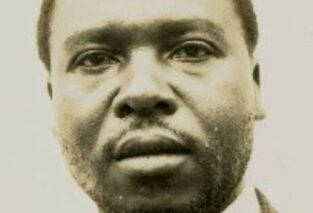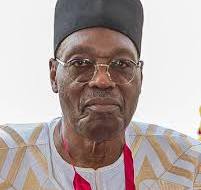A recent story on LinkedIn caught my attention. In it, the author narrates how he had written and published a story in a newspaper in Lagos, Nigeria, featuring a poor man who, years later, came looking for him to thank him for giving him a voice. That brought to mind a similar story I wrote about a watch-repairer in Jakiri, a town in the northwestern region of English-speaking Cameroon. My wife and I were travelling to our village of Nkar a few miles north of Jakiri. We arrived on the Jakiri market day and stopped to buy a few things.
I saw a watch-repairer sitting on a stool behind a small table with a small wooden box nearby. Occasionally, he would dip his hand into the wooden box, rummage through it in search of a tiny part for the watch he was repairing. I decided to talk to him because I could see a good story for the Catholic weekly, L’Effort camerounais, where I was the editor-in-chief of the English edition. We were always looking for people like him, the struggling masses, the lumpen-proletariat, to highlight for praise. People without a voice, who live at what Pope Francis calls ‘the peripheries’ of our lives and cities.
I greeted him, introduced myself as a journalist and told him I would like to talk to him about watch-repairing. I doubt that he clearly understood what I wanted but he was willing to talk. He said he learnt watch-repairing as a young man from an Igbo man in Bamenda. Several years later, he came back to his village, took to subsistence farming but never gave up watch-repairing, which was a passion for him. Those were the days before cellphones rendered watches practically irrelevant to many people in Cameroon today.
I asked how much he made on a good day. He said a few hundred francs CFA, just enough to buy food, mainly meat, for his family at the end of the market day. He and his wife, like everyone else in the village, relied on subsistence farming for a living.
I took out my camera and took pictures of him for the story I later wrote, which covered a quarter of a page. I sent a copy of our newspaper to him through my brother, who had come to Douala on a visit. He later told me how excited the man had been, especially when he saw his picture in the newspaper.
Nearly a year later, we were again on our way to visit our families and it was another weekly Jakiri market day, and the watch-repairer was at work, as diligent as ever. I walked up to him and asked him if he remembered the man who wrote an article about him in the newspaper. He immediately recognised me, dropped the watch he was working on, jumped up and warmly hugged me. He thanked me for making him a ‘celebrity’ around Jakiri where more people had bought that issue of our newspaper just to see what was said about him. He thought it had also positively impacted his business as more and more people were bringing their watches to him for repairs.
I was soon surrounded by a small crowd, who came to see the man who had put their friend in the newspaper. One fellow, a palm-wine cup in hand and already swaying from side to side under the influence of alcohol, grabbed my arm and asked me to write about him as well. All those around burst out laughing; some began to taunt him, asking what he had ever done in life, except drink himself silly. “Yes, I want him to write my own story. Let him write that I love palm-wine; that I love kolanuts as well; that I have seven children; that I am planning to marry a second wife, a tall Bamum woman, as light as an albino.” He would have gone on and on had someone not pushed him away from me. But, all said and done, I was happy that a simple story in our newspaper had brought so much joy, not only to the watch-repairer, the subject of the story, but to his family and friends as well. Yes, the poor do deserve to be heard as well.



